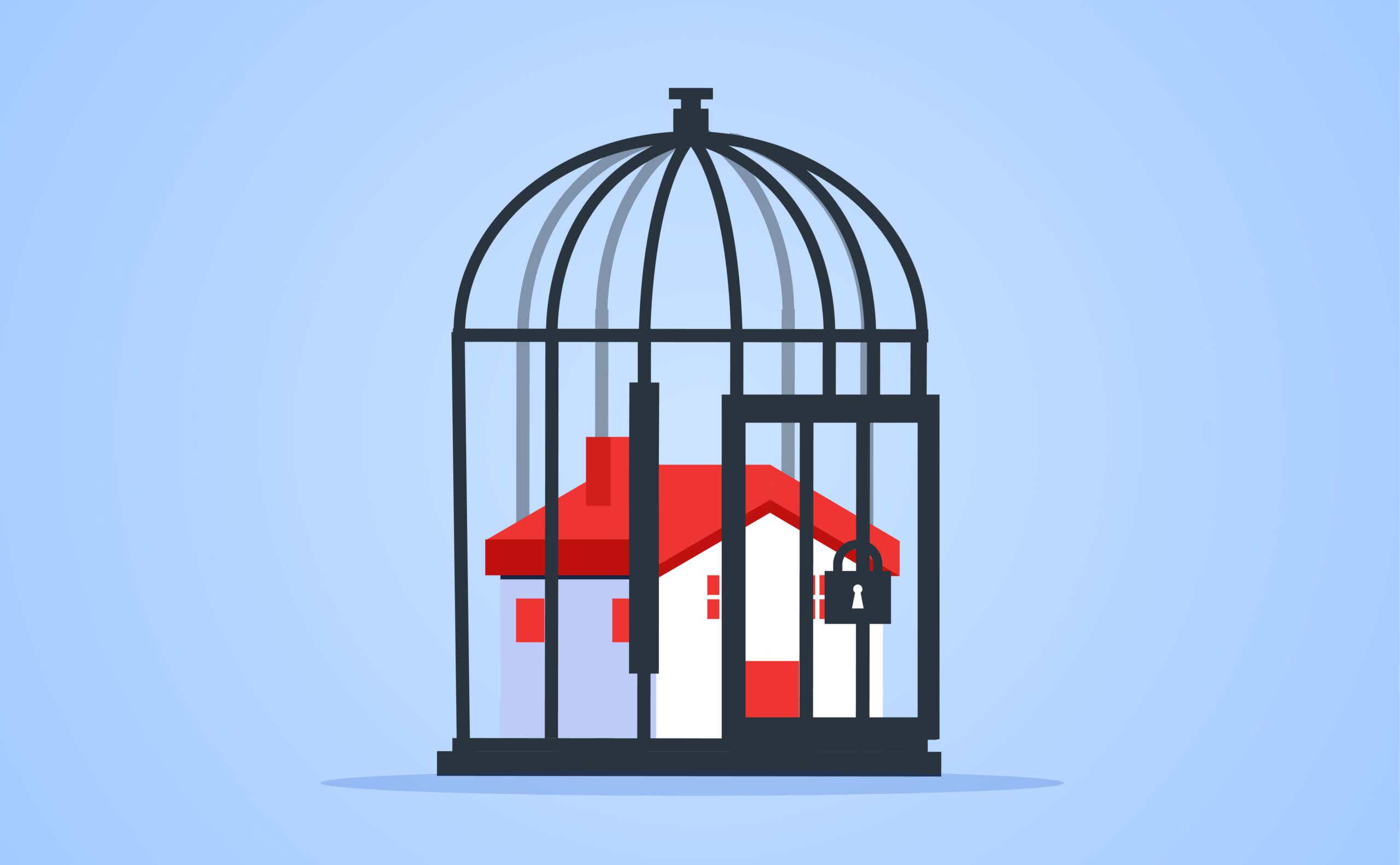The housing recession is here — at least according to one major indicator. We’re breaking down what economists have to say about the future of the housing market and what it means for you.
Confidence in the housing market is falling fast, according to the National Association of Home Builders/Wells Fargo Housing Market Index. The survey of hundreds of home builders measures their sentiment for the current state of home sales, sales over the next six months, and the level of interest from prospective buyers. Those ratings are then compiled to create a score, which can fall anywhere from 0 to 100. (Any reading under 50 is a sign that builders consider conditions to be poor.)
The index has declined for the last eight months and in August it reached 49. That’s the first time it’s turned negative since the beginning of the pandemic. (Before that, the index hadn’t dipped that low since June 2014).
“Tighter monetary policy from the Federal Reserve and persistently elevated construction costs has brought on a housing recession,” Robert Dietz, the NAHB chief economist said.
What exactly is a housing recession?
There is no set definition, though it’s a broadly used term. Dietz told USA Today that it can occur when “a number of key metrics are showing weaknesses.” He pointed to declining home builder sentiment as well as a dip in the number of new homes under construction.
“That should show there is a problem,” he said. “When you combine all of that and add on clearly slowing home price decline in some local markets, that’s a fairly good indication of what a housing recession looks like.”
How much are home prices falling?
Nearly 20 percent of builders said they had slashed their prices to boost sales or limit cancellations in the past month, according to the survey. The median discount was about 5 percent.
But a new report from the credit rating agency Fitch found that there is a small (but steadily increasing) chance that if a severe housing downturn were to occur, home prices could sink as much as 15%. However, Fitch concludes that it’s more likely we’ll see a decline of “mid-to-high-single-digit percentages” over the next two years.
Where are home prices falling?
An analysis conducted by the financial intelligence firm Moody’s of the country’s 414 largest housing markets, forecasts that 231 regions will see home prices drop in 2023, Fortune reports. The biggest declines are expected in The Villages, Fla. (-6.96 percent), followed by Punta Gorda, Fla. (-6 percent), Reno (-5.57 percent), Honolulu (-5.56 percent), and Spokane, Washington (-5.52 percent).
On the other hand, 183 housing markets are projected to see rising home prices next year, with the largest jump expected in Albany, Ga. (4.12 percent).









